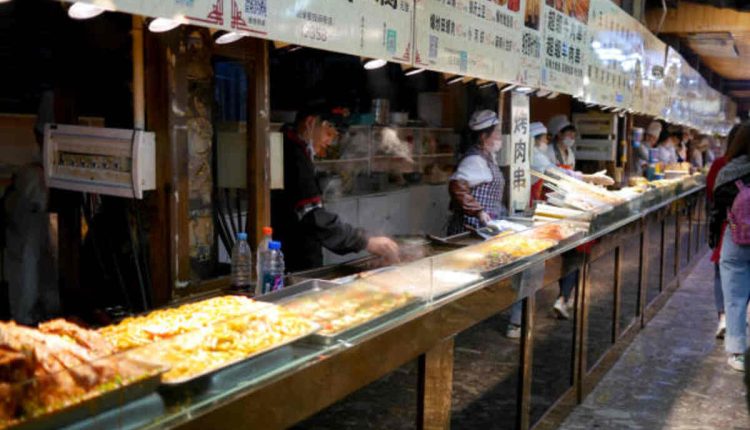Food Courts and Food Halls at Your Local Mall
Shopping can work up an appetite; most malls feature food courts equipped with chains like Auntie Anne’s and Panda Express for snacks during your stroll.
Food halls in America have begun following suit with Asian marketplaces by offering more local cuisine. 14 Mill Market in Southwest Missouri is an example of an establishment with locally-curated restaurants.
What is a food court?
Food courts are spaces within shopping malls or airports with several fast-food restaurants offering fast cuisine. Each establishment has a counter and seating area; food vendors are often clustered together so customers can quickly grab something to eat; employees often assist customers with ordering and payment processes, while condiments, disposable utensils, and napkins may also be provided centrally in these food courts.
Although its creator remains unknown, food courts have quickly become an essential feature of many shopping malls around the globe. People love gathering at food courts to socialize and meet new people; many shopping centers now provide an array of dining options within food courts.
Food courts can be an ideal way for restaurants to expand their customer base and reach new audiences. One such food court in Manhattan’s Flatiron District features over two dozen vendors from Sichuan cuisine to Korean fare – this includes Mah Ze Dahr Pastries for delicious pastries, Kazunori Sushi for hand rolls, and Teranga offering West African lunch bowls as examples of such establishments.
Cities across the U.S. are creating their versions of food halls. Some resemble Singaporean hawker markets, while others, like Long Beach’s SteelCraft in shipping containers, cater to people searching for authentic and distinct flavors in their meals. Overall, food halls seem to be becoming increasingly popular as more consumers look for original and unique dining options.
What is a food hall?
Food halls offer an innovative alternative to food courts. Commonly found in remodeled warehouses or on the ground floor of mixed-use buildings, food hubs focus on local rather than chain restaurants for optimal customer engagement through music, games, and social spaces.
At Inner Rail and Time Out Market locations across the country, food choices resemble that of food trucks in a park rather than those found at mall food courts, offering everything from Nepali street food at Inner Rail to artisanal pizza at Time Out Market locations nationwide. They also feature an impressive variety of beverages, such as craft beer, wine, and cocktails.
Many vendors operate turnkey kitchens with restaurant point of sale (POS) systems to allow online ordering and pickup for their customers. Customers can order from multiple restaurants in one transaction, with available delivery or curbside pickup options.
Food halls incubate new restaurants and concepts, often helping them move into their brick-and-mortar locations later. Kathmandu Momo Station at Omaha’s Inner Rail Food Hall provides hand-wrapped chicken or pork dumplings topped with sesame-tomato-Nepal pepper sauce or vegan options for diners who prefer plant-based options.
What is the difference between a food court and a food hall?
Food halls are curated collections of local vendors offering high-quality, artisanal dishes. Commonly found in renovated warehouses or ground floors of mixed-use buildings, food halls provide a range of local dishes designed to create social gatherings, bars, live music performances, and artisanal shops.
Food halls offer a more upscale dining experience than typical mall restaurants, supporting independent restaurant entrepreneurs rather than franchised chains. Furthermore, they provide an array of culinary choices so everyone in your family will find something delicious to eat!
Food halls offer an ideal platform for aspiring restaurateurs to explore new concepts before committing to full-scale restaurant ownership. Food halls can provide lower costs of entry while giving owners more freedom in exploring various menu items, pricing models, and business strategies – not to mention providing a sense of community among foodservice operators and consumers alike.
Food halls have experienced tremendous growth over the years. They provide an affordable alternative to fast-food chains while offering a more comprehensive selection of cuisines. Food halls can also be great places for groups looking to experience new cuisines together without deciding on one place beforehand.

